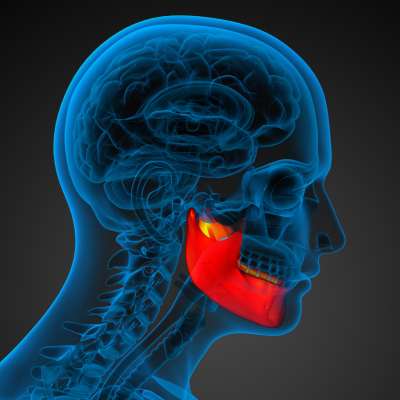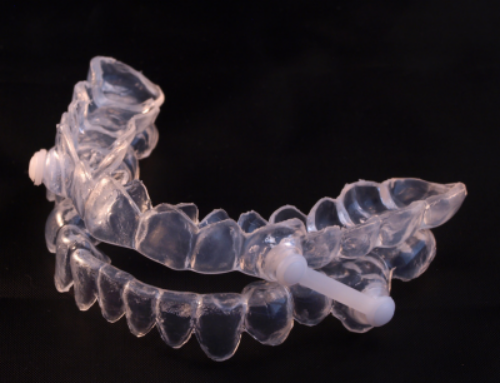 Good health and well-being hinge significantly on the quality of sleep you receive. However, many factors can impact sleep quality, including jaw alignment. At Virginia Sleep & TMJ Therapy, we understand the critical connection between jaw alignment and quality sleep. This blog explores how proper jaw alignment contributes to better sleep and discusses the impact of TMJ therapy on enhancing sleep quality for our patients in Richmond, East Highland Park, Lakeside and Mechanicsville, VA.
Good health and well-being hinge significantly on the quality of sleep you receive. However, many factors can impact sleep quality, including jaw alignment. At Virginia Sleep & TMJ Therapy, we understand the critical connection between jaw alignment and quality sleep. This blog explores how proper jaw alignment contributes to better sleep and discusses the impact of TMJ therapy on enhancing sleep quality for our patients in Richmond, East Highland Park, Lakeside and Mechanicsville, VA.
Understanding Jaw Alignment and Sleep
Jaw alignment, or occlusion, describes how your upper and lower teeth come together when your mouth is closed. When your jaw is properly aligned, it supports optimal muscle function and reduces strain on the temporomandibular joint (TMJ). This alignment is crucial not only for chewing and speaking but also for maintaining a relaxed posture during sleep.
Effects of Jaw Misalignment on Sleep
Misaligned jaws can lead to several sleep-related issues, including:
- Obstructive Sleep Apnea (OSA): A misaligned jaw can contribute to airway obstruction during sleep, leading to episodes of snoring and pauses in breathing characteristic of OSA.
- Temporomandibular Joint Disorder (TMJD): TMJD can cause jaw pain, headaches and muscle tension, making it difficult to relax and fall asleep.
- Bruxism (Teeth Grinding): Misalignment can increase the likelihood of bruxism, where you grind or clench your teeth during sleep, leading to jaw pain, tooth wear and disrupted sleep.
How TMJ Therapy Can Improve Sleep Quality
TMJ therapy aims to address issues related to jaw misalignment and TMJD, thereby improving sleep quality. Here’s how TMJ therapy can benefit individuals struggling with sleep disorders:
- Custom Oral Appliances: Dentists specializing in TMJ therapy can create custom oral appliances, such as mandibular advancement devices (MADs) or splints, to help reposition the jaw and alleviate symptoms of sleep apnea and bruxism.
- Pain Relief: By correcting jaw alignment and reducing strain on the TMJ, TMJ therapy can alleviate pain and discomfort associated with TMJD, allowing for more restful sleep.
- Improved Airway Patency: Certain oral appliances used in TMJ therapy can help keep the airway open during sleep, reducing the severity of sleep apnea symptoms and promoting uninterrupted breathing.
Lifestyle Tips for Better Jaw Alignment and Sleep
In addition to TMJ therapy, here are some lifestyle tips to promote better jaw alignment and enhance sleep quality:
- Maintain Good Posture: Proper posture, both during the day and while sleeping, can help align the jaw and reduce strain on the TMJ.
- Practice Jaw Exercises: Simple jaw exercises, such as gently opening and closing your mouth and moving your jaw from side to side, can help strengthen jaw muscles and improve alignment.
- Avoid Excessive Caffeine and Alcohol: These substances can contribute to jaw tension and interfere with sleep quality. Limiting their consumption, especially in the hours leading up to bedtime, can promote relaxation and better sleep.
Seeking Professional Help
If you suspect that jaw misalignment or TMJD is affecting your sleep quality, consult with a qualified TMJ specialist specializing in sleep disorders. They can conduct a thorough evaluation, recommend appropriate treatments and provide personalized care to help you achieve better sleep and overall health.
Identifying Symptoms of Jaw Misalignment and TMJD
Recognizing the symptoms of jaw misalignment and TMJD early can help prevent further complications and improve sleep quality. Common signs include chronic jaw pain, headaches, earaches and clicking or popping sounds when opening or closing the mouth. Some individuals may also experience difficulty chewing or find that their bite feels “off.” If you notice any of these symptoms, it’s important to seek professional evaluation to determine if TMJD or jaw misalignment is the cause.
The Benefits of Early Intervention
Early intervention for jaw misalignment and TMJD can lead to more effective treatment outcomes and prevent long-term damage to the teeth and jaw. Addressing these issues promptly can also alleviate associated symptoms such as headaches and muscle tension, thereby enhancing overall quality of life. Moreover, improving jaw alignment can reduce the risk of developing more severe conditions like obstructive sleep apnea, which can have significant health implications if left untreated.
Personalized Care for Lasting Results
At Virginia Sleep & TMJ Therapy, we are committed to providing personalized care tailored to the unique needs of each patient. Our comprehensive approach includes thorough assessments, custom treatment plans and ongoing support to ensure lasting results. By focusing on both the underlying causes and the symptoms of jaw misalignment and TMJD, we help our patients achieve better sleep, improved health and a higher quality of life. If you’re experiencing sleep issues related to jaw alignment, contact us today to learn how our specialized treatments can benefit you.
Request Your Appointment in Richmond, VA Today
At Virginia Sleep & TMJ Therapy in Richmond, VA, we recognize the significant role that jaw alignment plays in quality sleep. By addressing issues related to TMJD and jaw misalignment through TMJ therapy and supportive care, we aim to improve our patients’ sleep quality and overall well-being. If you or a loved one is experiencing sleep disturbances or jaw discomfort, don’t hesitate to request an appointment for expert evaluation and treatment options. Quality sleep is essential for a healthy life, and we’re here to help you achieve it through effective TMJ therapy and personalized care.




